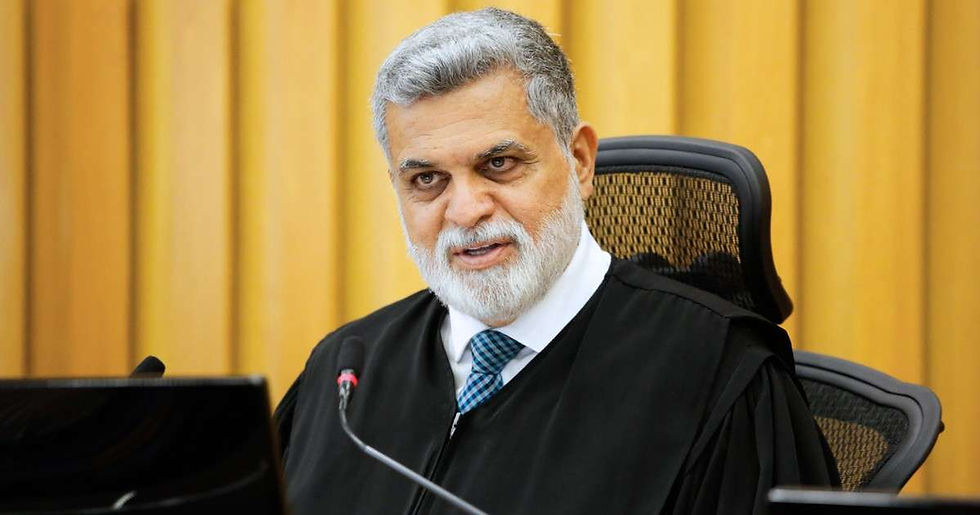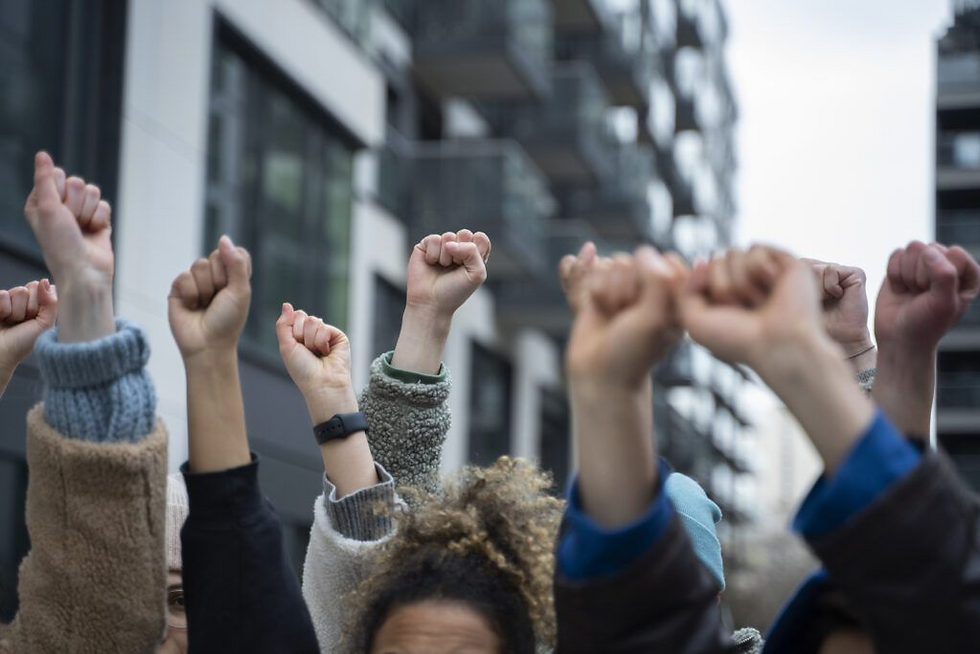Belarusian authorities refused to recognize mandate of the International Labour Organization’s Special Envoy to Belarus
- Sep 30, 2025
- 4 min read
The Special Envoy of the ILO DG for Belarus Lelio Bentes Corrêa, has embarked on his mission.

BACKGROUND
In 1986, Lelio Bentes Corrêa took a bachelor’s degree in Law at the University of Brasilia and in 2000, a master’s degree in International Law in the area of human rights at the University of Essex. In 1989, he started working at the Public Labour Prosecution Office (MPT).
In 2002, he became the Head of the National Coordination Committee for combating child labour and protecting working adolescents and from 2001 to 2003 he was a member of the Supreme Council of the Public Labour Prosecution Office.
As part of his secondment to the ILO, he worked in Geneva as Programme Coordinator for Latin America within the International Programme for the eradication of child labour. He is the author of a number of research publications devoted to human rights, in particular, to combating child and slave labour. From 2006 till 2020, he was a member of the ILO Committee of Experts for the Application of Conventions and Recommendations. From July 2003, he holds the position of a judge in the Supreme Labour Court of Brazil.
The Acting President of the Belarusian Congress of Democratic Trade Unions Maxim Pazniakau pointed out to “Salidarnast” that Mr. Corrêa’s appointment brought with it a hope that the Government of Belarus would have the wisdom to engage with the Special Envoy and start a meaningful good-faith dialogue at the ILO fora.
However, so far, this has not come to pass. Official Minsk has chosen not to recognize the mandate of the ILO Director General’s Special Envoy.
“The nomination of Lelio Bentes Corrêa was presented at the 354th session of the ILO Governing Body in June 2025. He is from Brazil and he currently holds the position of a judge in the Supreme Labour Court, which depicts him as a person of authority, integrity, and professionalism in the area of labour relations.
“Mr. Corrêa also has many years of experience working at the ILO. On top of that, he comes from the country that does not evoke a feeling of, let us say, irritation in the Belarusian Government: Brazil is seen as a friendly state.
“However, the authorities’ position remains unchanged – no dialogue. And that, in my opinion, is a strategic mistake.
“Currently Lukashenka’s regime is geared to engagement with the Trump administration. For the Belarusian authorities this is a less painful process wherein they can make deals while continuing to ignore their obligations to observe human rights in the country. In this sense, their refusal to recognize the ILO Special Envoy’s mandate is easy to explain.
“I think that, as far as the International Labour Organization is concerned, the recent release of the trade union leaders Aliaksandr Yarashuk and Gennady Fedynich does not show any meaningful progress in terms of the process started under Article 33 of the ILO Constitution – the release does not bring the return of the right to freedom of association to Belarus any closer. Moreover, 21 unionists still remain behind bars.
“And the way this release was executed speaks of blatant disregard for accepted international practices: the two leaders were, in fact, deported from the country, their passports were withheld, and, by way of an ID, they were only issued a piece of paper that was valid for one month. Nor do they have any release certificate or any document stating the grounds for their release.
“What has happened and is still happening is, in fact, trading in political hostages by the Belarusian State.
“Of course, what the United States has been doing for the release of these hostages are necessary steps in the right direction. But this is ruefully insufficient to put an end to repressions in Belarus and ensure the country’s return to democracy with the respect for human rights, including the freedom of association, fully restored. In the meanwhile, we see that the regime continues rounding up new hostages and the lists of political prisoners grow longer by the day.
“So, we, of course, welcome the release of our comrades, colleagues, and other political prisoners but the way it was carried out and how the released unionists were treated fills us with profound indignation. The two union leaders cannot get new passport because that requires a trip to Belarus and going back is impossible as they do not have the necessary documents.
“They cannot dispose of their property inside the country because they are unable to issue a power of attorney; they are deprived of their pensions because they cannot open a bank account where the money could be transferred, nor can they withdraw funds from their accounts in Belarusian banks. They have been deprived of many rights – in fact, this is a kind of denaturalization effected without any official procedure and a public announcement.
“Thus, the regime contributes to the ever-growing international isolation of the country. I think that the ILO Governing Body will give an appropriate assessment to these actions of the Belarusian authorities at its November meeting.
“And the refusal to recognize the mandate of the ILO Special Envoy is an absolutely short-sighted decision. It will not lead to the resolution of the issues faced by Belarus today, including the emerging social and economic crisis whose first signs are already clearly visible.
“Probably, the regime believes that these problems can be resolved with the assistance of the US administration but I do not think that this can improve the situation of the Belarusian society and the Belarusian State in the medium or longer term.
“I find the authorities’ unwillingness to engage in a dialogue with the International Labour Organization completely impossible to understand because it is a good opportunity to lay down a basis for future exchanges on a host of topical issues including the end to isolation and the lifting of trade sanctions.”
Victoria Leontyeva
Read in rus



Comments